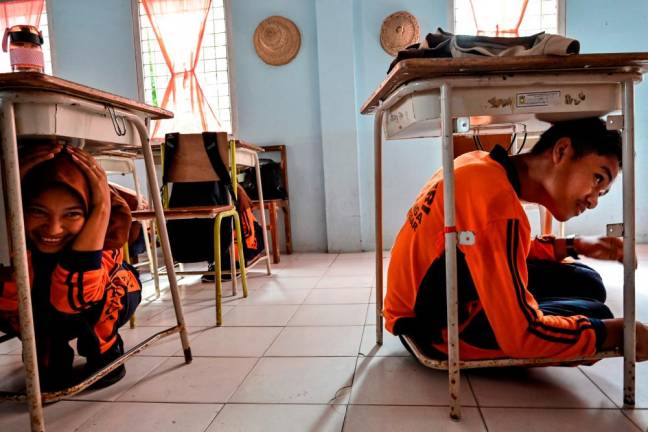EFFORTS to reduce the high number of unemployed in Malaysia affected by the Covid-19 pandemic are ongoing.
As reported by The Edge Markets, the government is confident of achieving its lower unemployment rate target of 3.5% this year despite the imposition of the latest movement control order (MCO). It is estimated by the National Employment Council (NEC), whose formation was announced during the tabling of Budget 2021, that more than 160,000 new jobs would be created.
The NEC Special Task Force is said to have rolled out strategies to tackle issues of unemployment and skills mismatch, which has led to underemployment especially among graduates.
Another positive development pertaining to the unemployment issue was stated by Finance Minister Tengku Datuk Seri Zafrul Abdul Aziz that the upcoming 12th Malaysia Plan and Budget 2022 would involve human capital policies, taking into account the underemployment issue.
The unemployment rate registered was slightly higher in the final quarter of last year at 4.8%. This represents a greater number of unemployed people, from 745,000 in the third quarter of last year to 760,700 in the fourth quarter.
The severe impact of the pandemic and MCO on the labour market is also reflected in time-related underemployment, which refers to people who are employed for less than 30 hours a week given their nature of work or due to insufficient work assigned to them. Many have been laid off by their employers due to cost-cutting measures, and left with no choice but to shift to any kind of job with different wage levels or working environments.
In the final quarter of last year, time-related underemployment went up to 369,000 persons from 301,000 in the preceding quarter. As a share of total employment, this type of underemployment rose again from 2% to 2.4%.
The Employment Insurance System data shows the loss of employment going up again in January compared with December, from 6,805 benefit recipients to 8,334. The total number of skill-related underemployment continued to increase to 1.89 million persons in the fourth quarter from 1.76 million in the third quarter.
Although the share of underemployed out of the total tertiary-level graduates was lower in the fourth quarter, having fallen to 34.4% from 36.8% in the third quarter, the percentage point decrease is not too significant.
This is in addition to the latest release of Malaysia’s quarterly Gross Domestic Product in the fourth quarter of last year, which shows a further decline at 3.4% as against 2.6% in the third quarter.
Although most economic sectors are open under the extended MCO, employment will still be affected as businesses face uncertainties about their future.
Therefore, another extension of the Wage Subsidy Programme announced in the Permai package is very welcome and it is heartening to see that the number of eligible employees has been increased from 200 to 500. It would support firms to retain more workers. Within the public sector and government-linked companies, the government has kickstarted its Short-Term Employment Programme this year, which provides job opportunities on a contract basis.
Reskilling and upskilling programmes were also extended from last year to help the workforce stay relevant in the job market. Concurrently, creation of high-value jobs through quality investments must also be present.
The Social Security Organisation’s Employee Insurance System also plays a crucial role in helping eligible workers to weather the crisis.
The writer is Research Analyst at EMIR Research. Comment:letters@thesundaily.com









